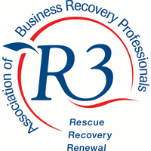It remains a strategic objective for colleagues to establish strong links with external bodies, including statutory, voluntary, community, professional and business organisations, and community groups, as well as to work collaboratively on funding opportunities. Such activities are carried out on a local, national and international basis.
Recent examples of collaboration with external bodies include the work of our Insolvency Law specialists who have conducted research projects:
1) on behalf of the UK Government in the area of Pre-Packaged Administration and more recently in evaluating Parliament’s reaction to Covid-19 in introducing new processes to protect companies and their businesses brought into effect by the Corporate Insolvency and Governance Act 2020;
2) on behalf of professional and trade bodies (ICAEW, IPA and R3); and
3) on behalf of the World Bank and the Kenyan Government.
These are a product of close links forged by our team of specialists with those organisations by being on national technical committees and being invited regularly to speak at practitioner conferences. A highly effective way of ensuring research is relevant, impactful, and reaches its target audience is to work with trade, professional, and Government bodies. This has led directly to impactful research, as evidenced in the two REF 2021 impact case studies where 25% of our impactful research was assessed as world leading (with a further 50% considered internationally excellent).
Research findings have been recognised by Government and professional bodies and cited many times in Parliament and in the courts. The reach and significance of such impact is due to the high quality of the research and the strategic approach adopted to ensure research findings are widely known and relevant to current practical problems
Another great example of productive collaboration is the work of Potocnik, who implements her feminist approach to intellectual property law in collaboration with
The F-List for Music CIC, where she also sits on the Board of Directors. Strategically, she has co-founded the Research Hub @The F-List, which aims to create
space for interdisciplinary, feminist, critical scholarship into structural barriers for women and gender minority musicians. The F-List pursues its vision when
"Women in the music industry will be able to more successfully start and sustain their careers in music for longer because of The F-List" through the mission of
"Helping UK female and gender minority musicians overcome structural barriers by facilitating training and profile and professional opportunities."
Collaborators:







/prod01/wlvacuk/media/departments/digital-content-and-communications/images-2024/Diane-Spencer-(Teaser-image).jpg)
/prod01/wlvacuk/media/departments/digital-content-and-communications/images-18-19/220325-Engineers_teach_thumbail.jpg)
/prod01/wlvacuk/media/departments/digital-content-and-communications/images-2024/240509-Menopause-Research-Resized.jpg)
/prod01/wlvacuk/media/departments/digital-content-and-communications/images/Maria-Serria-(teaser-image).jpg)
/prod01/wlvacuk/media/departments/digital-content-and-communications/images-2024/241014-Cyber4ME-Project-Resized.jpg)
/prod01/wlvacuk/media/departments/digital-content-and-communications/images-2024/240315-Research-Resized.jpg)
/prod01/wlvacuk/media/departments/digital-content-and-communications/images-2024/BDA-group-photo.jpg)
/prod01/wlvacuk/media/images/2019-re-design/intro-banner/judge-1.jpg)